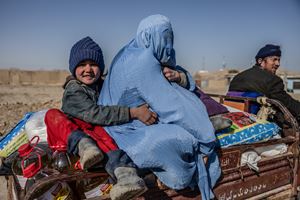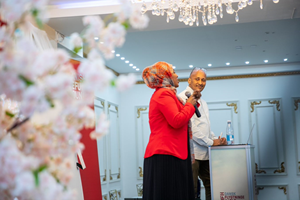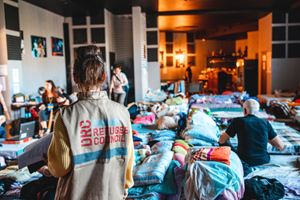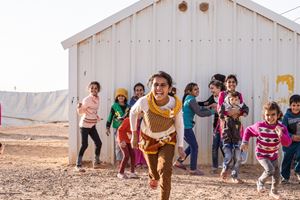
Diaspora Contribution to Climate Action
Diaspora communities are not only key players in immediate disaster response and recovery, they also contribute significantly to long-term climate resilience through investment in green technologies and knowledge transfer. Their deep ties to their countries of origin and host enable them to respond quickly and sensitively to climate crises. These efforts are essential for immediate response efforts and long-term adaptation strategies to build resilience to climate-related challenges.

The Role of Diaspora in Responding to Climate-Related Disasters
DEMAC - Diaspora Emergency Action & Coordination is committed to maximising the potential of diaspora communities to support humanitarian responses. DEMAC's approach is based on the understanding that diasporas bring invaluable resources, both financial and non-financial, to their countries of origin. These include remittances, social capital, knowledge, and the ability to mobilise quickly in times of crisis. By promoting inclusive coordination and collaboration, DEMAC aims to integrate diaspora efforts with those of local and institutional actors, thereby improving the overall impact of humanitarian assistance.
Diasporas play a crucial role in responding to climate-related disasters. Their efforts often complement traditional humanitarian responses, providing timely and culturally relevant assistance:
- Humanitarian Assistance: Diaspora communities are often among the first to respond to disasters, providing immediate relief through remittances and donations to local NGOs. These funds are crucial for meeting immediate needs such as food, medicine, and temporary shelter.
- Recovery Efforts: Beyond immediate relief, diasporas contribute significantly to disaster recovery. This includes rebuilding infrastructure, such as reinforcing ceilings and supporting post-flood dike construction, aligned with the "build back better" concept.
- Long-Term Support: Diasporas engage in long-term support activities aimed at building resilience. This includes investments in green infrastructure and projects that contribute to sustainable development in their countries of origin.
Examples of Diaspora Contributions
Diaspora actors have demonstrated their commitment through various initiatives around the world:
- The Zimbabwean diaspora launched the Zimbabwe Cyclone Relief Fund campaign through GoFundMe in response to Cyclone Idai in 2019, raising over US$100,000 to support immediate relief and post-disaster recovery efforts.
- The Pakistani diaspora raised significant funds to support flood victims in 2022, demonstrating the community's ability to mobilise resources quickly.
- In Sri Lanka, diaspora members participated in awareness-raising events such as the Climathon and contributed to climate-related education and advocacy.
- The Nepalese diaspora provided significant support during the 2017 floods, demonstrating their critical role in immediate disaster response and long-term recovery.








Strengths and Challenges
Diaspora engagement in climate action brings particular strengths and challenges. Their ability to operate in areas beyond the reach of traditional humanitarian actors, as well as their cultural sensitivity and flexibility, make their contributions highly effective. However, they also face challenges such as limited funding, potential conflicts of interest and capacity constraints.
Strengths
- Reach: Diasporas often operate in areas beyond the reach of institutional humanitarian actors, providing aid to underserved communities.
- Cultural Sensitivity: Close ties with local populations enable culturally sensitive interventions that build trust and effectively meet community needs.
- Flexibility and Responsiveness: Diaspora interventions tend to be prompt and flexible, tailored to specific local requests.
Challenges
- Limited Funding: Diaspora responses are typically smaller in scale due to limited funding compared to institutional humanitarian actors.
- Potential Conflicts of Interest: Interventions can sometimes be influenced by kinship or ethnic backgrounds, leading to potential conflicts of interest.
- Capacity Constraints: Many diaspora organisations rely on volunteers and short-term funding, which can limit their capacity compared to more formally structured organisations.
With the increase in frequency of climate change-related hazards, especially in countries of the Global South, the diasporas’ response to emerging humanitarian crises is increasingly connected to the recovery of affected populations, similar to their response to other humanitarian crises.
/ DEMAC - Diaspora Emergency Action & Coordination
Countries in the Diaspora Programme


Somali Diaspora
Read more
Ukrainian Diaspora
Read moreProjects in the Diaspora Programme

DiPS - Diaspora Project Support
Read more
DEMAC - Diaspora Emergency Action & Coordination
Read more


